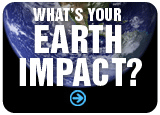 "Current documented rates of extinction of species are estimated to be roughly 100 times higher than typical rates in the fossil record." - United Nations GEO4 report.
"Current documented rates of extinction of species are estimated to be roughly 100 times higher than typical rates in the fossil record." - United Nations GEO4 report.Golden Mahseer
 Have you ever seen the golden mahseer before? The majestic fish, known to reach 2.75m in length and 60 kg in weight, is no ordinary fish. Lying at the top of the food chain, the golden mahseer is the emperor of the freshwater fish species inhabiting the mountain streams of the Himalayas. But in recent years, its population have been declining rapidly because of net and dynamite fishing, damming and pollution of the rivers it depends on.
Have you ever seen the golden mahseer before? The majestic fish, known to reach 2.75m in length and 60 kg in weight, is no ordinary fish. Lying at the top of the food chain, the golden mahseer is the emperor of the freshwater fish species inhabiting the mountain streams of the Himalayas. But in recent years, its population have been declining rapidly because of net and dynamite fishing, damming and pollution of the rivers it depends on.Living often in the same habitats as the golden mahseer is another species which was suddenly found this year to be highly endangered - the gharial, or fish-eating crocodile. With increasing human encroachment into their habitats and as gharials compete directly with people for fish in the rivers they inhabit, there are now only an estimated 200 breeding adults left in the wild as compare to about 10,000 in the 1950s.
Ghavial
 Like the golden mahseer and gharial, thousands of species are dying worldwide, often unacknowledged because they are not cute or cuddly. Some, like the Sumatran Rhino, are functionally extinct in the wild - meaning their population is so low and so widely scattered that breeding is no longer possible.
Like the golden mahseer and gharial, thousands of species are dying worldwide, often unacknowledged because they are not cute or cuddly. Some, like the Sumatran Rhino, are functionally extinct in the wild - meaning their population is so low and so widely scattered that breeding is no longer possible.A recent update of endangered species by the Swiss-based World Conservation Union in September concluded that more than 16,000 species are in danger of being extinct - 188 more than last year. In Europe, more than a third of the continent's 522 freshwater fish species face extinction due to overfishing, pollution and damming which have caused rivers to dry up. The European eel, which reproduces only once in 20 years, is critically endangered and the population of jarabugo, a freshwater fish found only in Spain and Portugal, has declined by more than 50 per cent in the past 10 years.
Golden Headed Langur
 Hong Kong's Ocean Park Conservation Foundation released findings recently that showed 79 species of freshwater turtles - 80 per cent of the turtle family in Asia - are endangered. Asia alone has 11 primates, including the Hainan black-crested gibbon and Siau island tarsier, on the endangered list. In Vietnam, the population of the beautiful golden-headed langur has declined drastically - down from thousands of animals two generations ago to only 65 today.
Hong Kong's Ocean Park Conservation Foundation released findings recently that showed 79 species of freshwater turtles - 80 per cent of the turtle family in Asia - are endangered. Asia alone has 11 primates, including the Hainan black-crested gibbon and Siau island tarsier, on the endangered list. In Vietnam, the population of the beautiful golden-headed langur has declined drastically - down from thousands of animals two generations ago to only 65 today.While species extinction is a natural part of Earth’s history, numerous studies have clearly
shown that human activity is accelerating the extinction rate by at least 100 times. The causes of this rapid and widespread loss of biodiversity, with entire species in the air, on land, in freshwater and in our seas and oceans disappearing, includes loss of ecosystems from large scale conversion of natural forests for use in agriculture, industry and towns, changing the geography and hydrology of river systems with dams and reservoirs, over-exploitation of natural resources for food and commercial trade, and pollution.
Hainan Black-Crested Gibbon
 Biodiversity loss, as part of the food chain, has negative effects on several aspects of human well-being, such as food security, vulnerability to natural disasters, energy security, and access to clean water and raw materials. It also affects human health and social relations as it narrows the base for food and medicine.
Biodiversity loss, as part of the food chain, has negative effects on several aspects of human well-being, such as food security, vulnerability to natural disasters, energy security, and access to clean water and raw materials. It also affects human health and social relations as it narrows the base for food and medicine.This drastic loss of biodiversity is seriously impacting us if we are to survive as a species ourselves and it is now imperative that education on the importance of biodiversity be ramp up across all segments of our society. Further actions like habitat conservation, reduction in consumption and waste, recycling and promoting sustainable agric
 ultural practices are needed to reverse this loss in biodiversity so that future generations can enjoy our priceless heritage.
ultural practices are needed to reverse this loss in biodiversity so that future generations can enjoy our priceless heritage.*Sources :
- United Nations GEO 4
- World Conservation Union
- Hong Kong Ocean Park Conservation Foundation
- The Millennium Ecosystem Assessment
- GreenFacts. org
*Related post : A Planet In Peril







0 comments:
Post a Comment